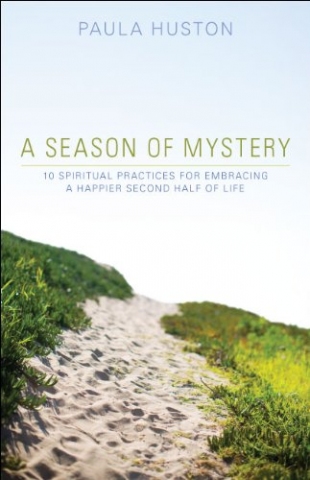"Perhaps this is one of the reasons we work so hard. Hyper-productivity is a way to harden ourselves against emotional turmoil, including the stormy anguish of grief or the shocking recognition that death is imminent. We've got too much to do; we cannot afford to spend serious time in thought. Hence, one of aging's greatest challenges makes its appearance when we find ourselves too old to be productive anymore. Suddenly, we are faced with certain facts about life that we've been able to hold at bay for decades simply by keeping ourselves so busy we've had no free moments in which to ponder them.
"And thus does aging increase our levels of anxiety and fearfulness. Not only do we now have hours to cogitate — an activity guaranteed to make us hardworking Americans extremely nervous — but also we're steadily losing ground in the sensory department. We hear and see less than we used to. We fumble with our fingers and trip on our own feet. We forget what we heard or read two minutes ago. We're constantly falling asleep in the big blue chair. Some of us, medicated for various medical conditions, begin to experience vivid hallucinations that make it extremely difficult to sort out what is real and what is not. When we're constantly losing important items (the keys, the checkbook, the wallet), it's easier to blame others than to face the facts. The combination of frustration and suspicion can lead to elaborate conspiracy theories. No surprise, then, that senior paranoia is widespread; reality and the looming specter of death are simply too painful to bear.
"Monastic memento mori disrupts this vicious cycle. A daily meditation on dying can ease death's threatening sting, and it can also help us bear the grief that accompanies loss. The practice of memento mori reminds us that everything — our fondest memories of childhood, the physical relics of our most joyful moments, our very ability to see, hear, walk, and remember — are passing away, too. We cannot hold on to a single thing, no matter how we try. For this is the way of all flesh; naked we arrive and naked shall we depart. Many of the ascetical practices of monasticism are undergirded by memento mori. Disciplines such as fasting, celibacy, silence, and solitude highlight the ephemeral nature of the physical realm and thus force us to confront the brevity of earthly existence.
"What are some practical steps we can take to keep the reality of death before our eyes, especially in a society that tries its best to avoid the subject completely? First, every time we look into the mirror, we can gently remind ourselves that this person we have come to know so well is in the process of dying, and has been ever since birth. Nobody escapes; everyone is on the same road, including the youngest and freshest among us. Like birth, death is an experience that we all share, so why do we fear it so?
"Second, when we catch ourselves making long-term plans — in five years I will be doing this, in ten, this — we can stop and pray these words: God willing. During past eras when death took so many children and young adults, people tended to make fewer assumptions about the future and to more consciously place the future in God's hands.
"Finally, we can 'keep our bags packed,' in the sense that we are always prepared to make the journey out of this earthly existence, no matter when that journey begins. And one extremely important preparation for death is to have our affairs in order. Is there somebody we still need to forgive? Is there a relationship that needs healing? Is there something we are guilty about but have never confessed? To practice memento mori means to take care of these obligations while we still can."
